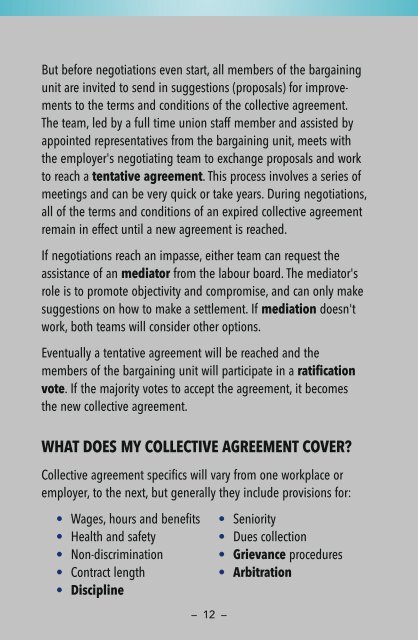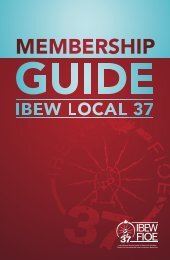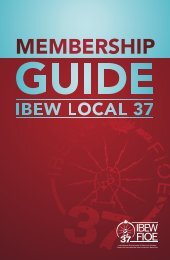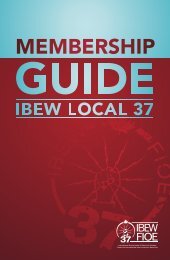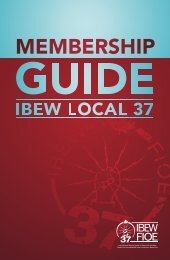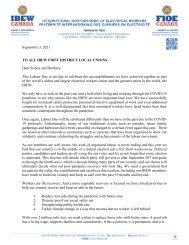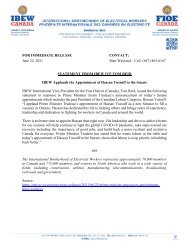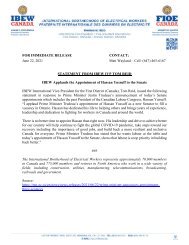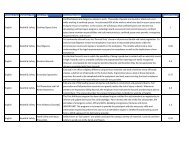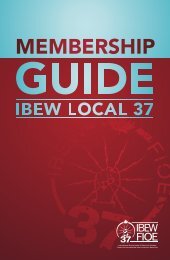IBEW Membership Guide - April 2024
Create successful ePaper yourself
Turn your PDF publications into a flip-book with our unique Google optimized e-Paper software.
But before negotiations even start, all members of the bargaining<br />
unit are invited to send in suggestions (proposals) for improvements<br />
to the terms and conditions of the collective agreement.<br />
The team, led by a full time union staff member and assisted by<br />
appointed representatives from the bargaining unit, meets with<br />
the employer's negotiating team to exchange proposals and work<br />
to reach a tentative agreement. This process involves a series of<br />
meetings and can be very quick or take years. During negotiations,<br />
all of the terms and conditions of an expired collective agreement<br />
remain in effect until a new agreement is reached.<br />
If negotiations reach an impasse, either team can request the<br />
assistance of an mediator from the labour board. The mediator's<br />
role is to promote objectivity and compromise, and can only make<br />
suggestions on how to make a settlement. If mediation doesn't<br />
work, both teams will consider other options.<br />
Eventually a tentative agreement will be reached and the<br />
members of the bargaining unit will participate in a ratification<br />
vote. If the majority votes to accept the agreement, it becomes<br />
the new collective agreement.<br />
WHAT DOES MY COLLECTIVE AGREEMENT COVER?<br />
Collective agreement specifics will vary from one workplace or<br />
employer, to the next, but generally they include provisions for:<br />
• Wages, hours and benefits •<br />
• Health and safety<br />
•<br />
• Non-discrimination<br />
•<br />
• Contract length<br />
•<br />
• Discipline<br />
Seniority<br />
Dues collection<br />
Grievance procedures<br />
Arbitration<br />
– 12 –


